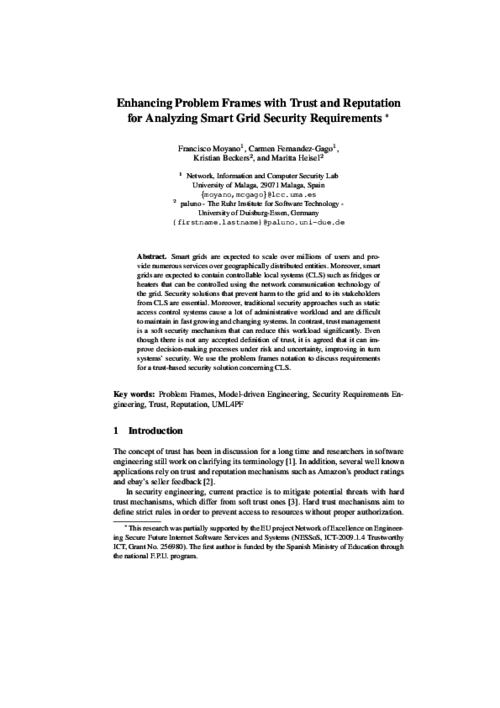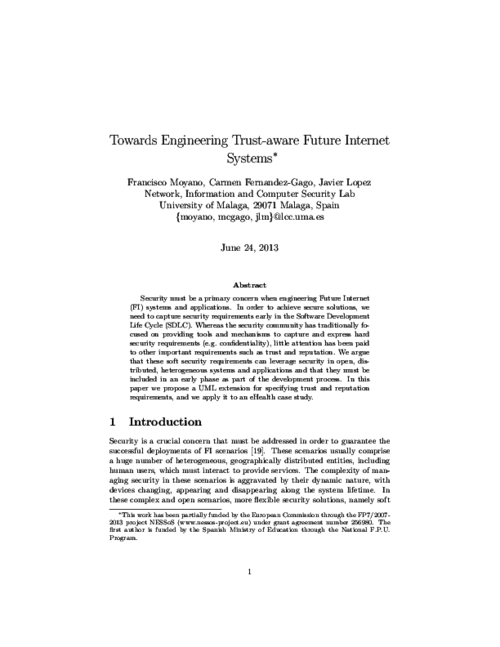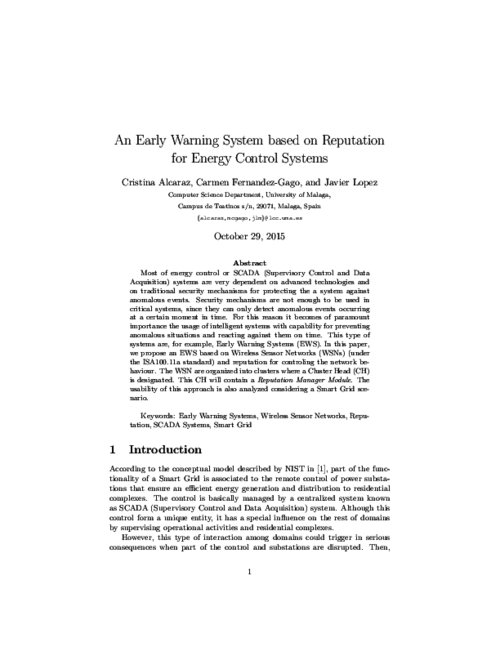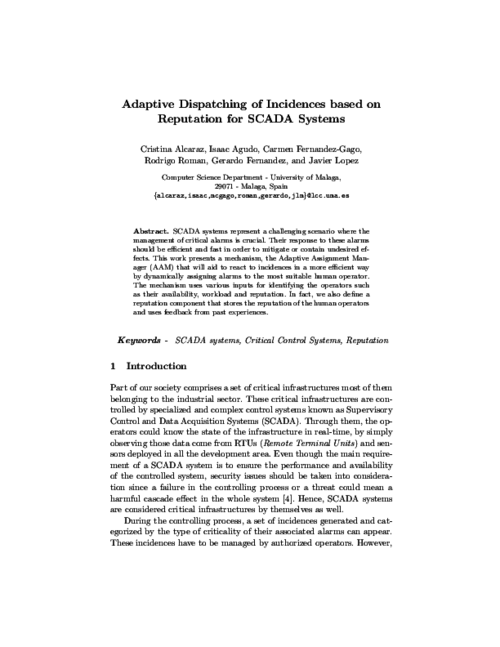 ]
] Smart Grid Security - Second International Workshop, J. Cuellar Eds., LNCS 8448, Springer, pp. 166-180, Aug, 2014. DOI

3rd International Workshop on Information Systems Security Engineering (WISSE 2013), X. Franch, and P. Soffer Eds., LNBIP 148, Springer-Verlag, pp. 490-501, Jun 2013. DOI
Abstract
Security must be a primary concern when engineering Future Internet (FI) systems and applications. In order to achieve secure solutions, we need to capture security requirements early in the Software Development Life Cycle (SDLC). Whereas the security community has traditionally focused on providing tools and mechanisms to capture and express hard security requirements (e.g. confidentiality), little attention has been paid to other important requirements such as trust and reputation. We argue that these soft security requirements can leverage security in open, distributed, heterogeneous systems and applications and that they must be included in an early phase as part of the development process. In this paper we propose a UML extension for specifying trust and reputation requirements, and we apply it to an eHealth case study.

IEEE Transactions on Smart Grid, vol. 2, no. 4, IEEE, pp. 827-834, Nov 2011. DOI
Abstract
Most of energy control or SCADA (Supervisory Control and Data Acquisition) systems are very dependent on advanced technologies and on traditional security mechanisms for protecting the a system against anomalous events. Security mechanisms are not enough to be used in critical systems, since they can only detect anomalous events occurring at a certain moment in time. For this reason it becomes of paramount importance the usage of intelligent systems with capability for preventing anomalous situations and reacting against them on time. This type of systems are, for example, Early Warning Systems (EWS). In this paper, we propose an EWS based on Wireless Sensor Networks (WSNs) (under the ISA100.11a standard) and reputation for controling the network behaviour. The WSN are organized into clusters where a Cluster Head (CH) is designated. This CH will contain a Reputation Manager Module. The usability of this approach is also analyzed considering a Smart Grid scenario.} keywords = {Critical Information Infrastructures, Sensor Networks, Early Warning Systems, Reputation, SCADA Systems, Smart Grid.

6th International Conference on Trust, Privacy and Security in Digital Business (TrustBus’09), Springer-Verlag, pp. 86-94, September, 2009. DOI
Abstract
SCADA systems represent a challenging scenario where the management of critical alarms is crucial. Their response to these alarms should be efficient and fast in order to mitigate or contain undesired effects. This work presents a mechanism, the Adaptive Assignment Manager (AAM) that will aid to react to incidences in a more efficient way by dynamically assigning alarms to the most suitable human operator. The mechanism uses various inputs for identifying the operators such as their availability, workload and reputation. In fact, we also define a reputation component that stores the reputation of the human operators and uses feedback from past experiences.
